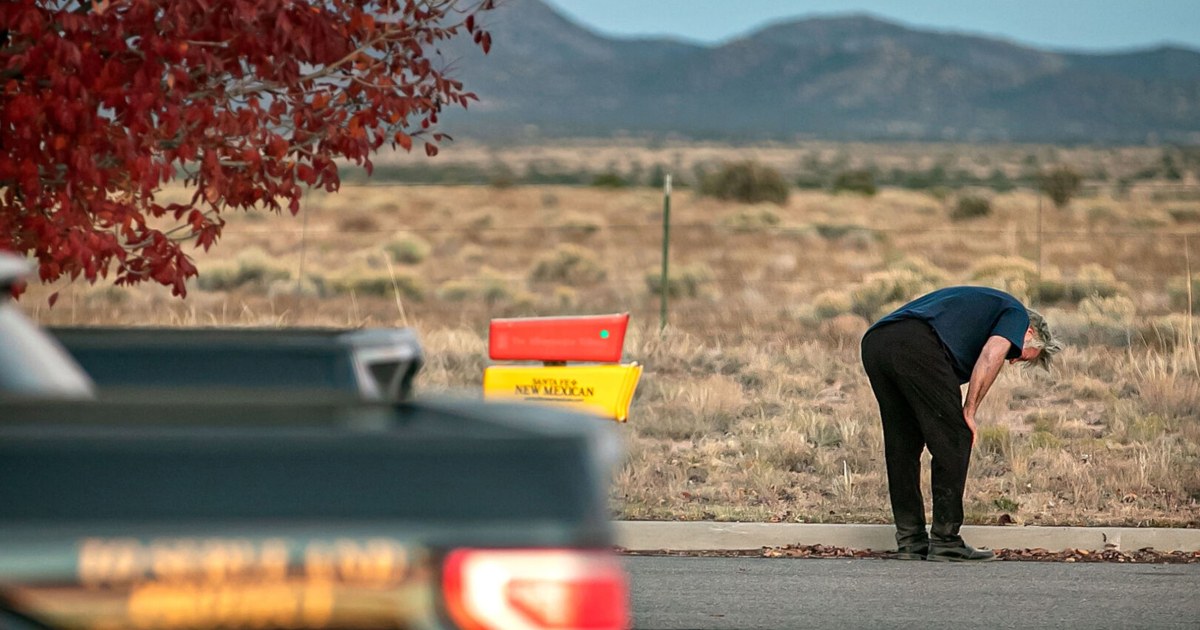
Normally in a shooting death, the person pulling the trigger is the primary wrongdoer. Others may encourage, facilitate, assist or even cover up the crime, but generally the law primarily punishes the one who did the actual shooting.
The case of Alec Baldwin may be one of those rare exceptions in which the person shooting the gun might be the least responsible party. Why? Because this may be an unusual situation where the person who pulled the trigger of a loaded firearm reasonably believed they were not pulling the trigger of a loaded firearm.
Baldwin fired a prop gun that killed director of photography Halyna Hutchins and injured director Joel Souza on the set of the movie “Rust” in New Mexico on Thursday, according to the Santa Fe County Sheriff’s Office. No charges had been filed as of Friday afternoon, though the sheriff’s office noted the investigation is ongoing.
A film set is an unusual place, where an actor generally has little personal responsibility for the props crew members put in his hands.
The International Alliance of Theatrical Stage Employees Local 44 said in an email to union members that “a live single round was accidentally fired on set by the principal actor.” Baldwin said Friday that his “heart is broken” and that he’s in touch with Hutchins’ family.
A film set is an unusual place, where an actor generally has little personal responsibility for the props crew members put in his hands. When guns are involved, many other individuals are involved as well, starting with the armorer, who supervises the use of weapons and may provide instruction on how to safely handle them. Prop masters are typically in charge of the prop setup. The stunt coordinator is often responsible for stunt safety. Set safety as a whole is also usually the responsibility of the first assistant director. The first assistant director may conduct safety meetings before any stunt. Anything involving firearms is typically reviewed and checked before the shoot. In contrast, actors are responsible for acting.
It’s harder to think about people other than the shooter being responsible when firearms are involved because society and our laws mostly presume that whoever picks up a gun already knows firearms are dangerous. It would be bad for everyone if murder defendants could assert an “I didn’t know loaded guns were dangerous” defense. Indeed, a defendant’s claim that he believed a gun was unloaded will often not shield him from criminal charges.
If you swap out the idea of guns on a set for something else, though, the relative responsibility between the actor and the crew becomes clearer. Consider one of Baldwin’s other films, “The Hunt for Red October,” a thriller about nuclear submarines. Imagine the script called for an actor on the set of the submarine’s bridge to push a red button. But instead of prop missiles on the submarine, a crew member thought it would be more realistic to use actual Soviet-era SS-20 ballistic missiles connected to that red button. When the actor pushes the button, he’s shocked when it actually launches the missiles, causing catastrophic harm.
Ridiculous hypothetical, but the point is: No one would expect the actor to be familiar with Russian submarine missile systems. That would be the armorer’s job, or the stunt coordinator, or anyone else’s job but the actor’s. And of course, using live missiles on the set would be an unthinkably negligent act. But so is allowing live rounds on set.
If the union is correct that it was a live round that was fired rather than a blank, it appears something went seriously wrong. According to safety bulletins written and distributed by the Industry-Wide Labor-Management Safety Committee, there should never, ever, be live rounds on a film set.
Even blank rounds, though, can be dangerous. Blanks and dummy rounds are like mirror images of each other. The former contains casing, a propellant and a primer cap but no bullet (the bullet is just the projectile — the entire thing is called a cartridge). It won’t look like a live round up close, but it will sound like one when fired. A dummy round, on the other hand, is inert; it has no propellant and primer. It will have something that looks like a bullet, but nothing should happen when it’s fired.
Actor Brandon Lee was shot and killed during the filming of “The Crow” in 1993 when the tip of a dummy round lodged unnoticed in the barrel of a prop gun. When the same gun was later loaded with blanks, a live round was accidentally created by the combination of a blank and the undetected projectile stuck in the barrel. A police investigation found plenty of mistakes, but the errors were so spread out among the crew that no one person was ever criminally charged.
If the actor knows that blanks could be dangerous by themselves, and then pulls the trigger too close to others, that could potentially be negligent.
A blank on its own can also be enough to do damage. In 1984, actor Jon-Erik Hexum accidentally killed himself when he fired a blank at his own head as a joke on the set of the TV show “Cover Up.” The force of the explosion pushed bone from his head into his brain, causing his death six days later.
Therein lies some potential responsibility for Baldwin. If, for example, an actor knows they are handling blanks in a firearm, and if the actor knows that blanks could be dangerous by themselves, and then pulls the trigger too close to others, that could potentially be negligent.
Baldwin has tweeted that he is fully cooperating with authorities in the investigation. Based on reports so far, if he trusted the crew to hand him a prop weapon and had no reason to believe it was a loaded gun, and if he didn’t do anything irresponsible with what he believed was a non-gun, then law enforcement will likely conclude he did nothing wrong.
It’s also possible that an investigation will focus on what the key crew members did leading up to this tragic accident. If their conduct is deemed to rise to the level of criminal negligence — that is, recklessness — they could possibly be charged. Far more likely, however, will be civil lawsuits alleging that the crew members, producers and companies’ conduct was negligent.
Source: | This article originally belongs to Nbcnews.com










